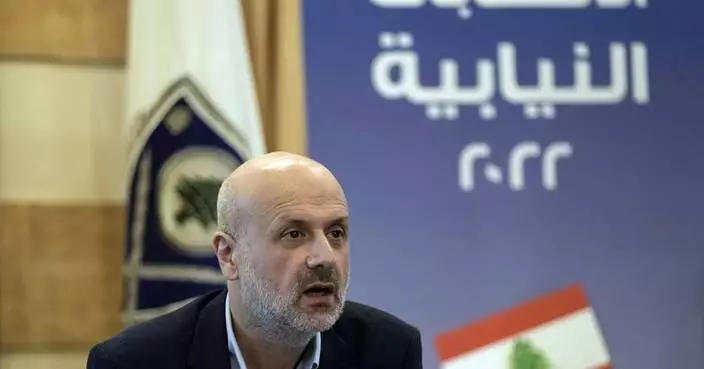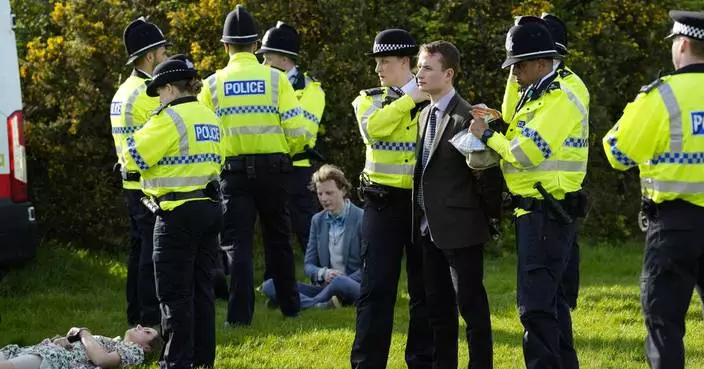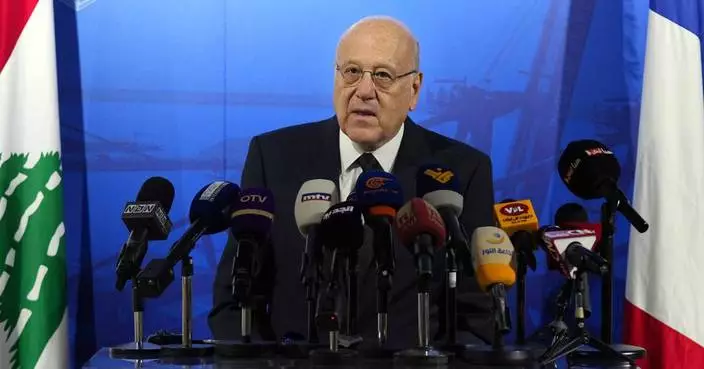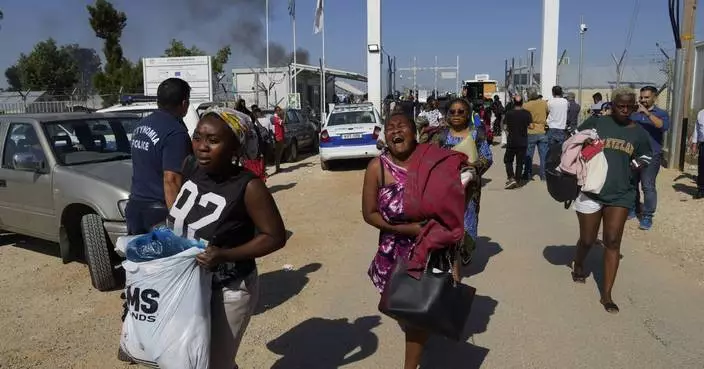Diplomats were meeting behind closed doors in Paris on Wednesday to consider measures to help Lebanon as it grapples with ongoing political turmoil and its worst economic crisis in decades.
The international group, co-chaired by France and the United Nations, is weighing conditions for providing financial aid to Lebanon. Lebanese businesses and households are growing increasingly desperate as cash supplies there have dwindled.
For two months, protests have decried government mismanagement and the current political system. But even as the financial crisis deepens, protesters have denounced the Paris meeting and promised to condemn any international financial assistance to a government they see as corrupt and illegitimate.
Prime Minister Saad Hariri resigned Oct. 29, but he has stayed on as caretaker prime minister since politicians have been unable to form a new government. Protesters want to see a non-sectarian, technocratic government — and they want all traces of the old regime, including Hariri, out of office.
France and the U.S. have made clear they support a new government in Lebanon.
Speaking in Washington on Wednesday, U.S. Secretary of State Mike Pompeo told reporters that “the responsibility lies with the Lebanese people” to push for a new political order. He said the U.S. is ready to “do the things that the world can do to assist the Lebanese people getting their economy right and getting their government right.”
The U.S. has escalated its sanctions on the Iran-backed Lebanese Hezbollah group, which dominates the national unity government that Hariri headed.
French Foreign Minister Jean-Yves Le Drian said at a press conference ahead of the Paris meeting that Lebanese authorities must “take into account the call of the street.” He urged Lebanese authorities to “form a government rapidly because any delay will aggravate the situation.”
Meanwhile, dozens of protesters in Beirut and Paris rallied Wednesday to call on the leaders meeting in France not to give financial assistance until a new government comes together.
“This authority ... no longer represents the Lebanese,” said a protester in Beirut reading a letter to be delivered to the French ambassador. Calling the current government corrupt, the protester said: “We don’t want (that aid) to go to waste.”
Hariri has called on Saudi Arabia, France, Turkey, the United States, China, and Egypt to send funds to help Lebanon finance imports.
But international donors are unlikely to write a check without substantial commitments to reform. More than 50 countries pledged last year to give Lebanon $11 million in aid, conditioned on Hariri implementing long-stalled reforms. Promised reforms never materialized.
Associated Press writer Matt Lee contributed to this report from Washington
BEIT MERI, Lebanon (AP) — Lebanon’s interior minister alleged Wednesday that the mysterious abduction and killing of a Hezbollah-linked Lebanese currency exchanger in a villa on the edge of a quiet mountain resort town earlier this month was likely the work of Israeli intelligence operatives.
The killing of Mohammad Srour, 57, who was sanctioned by the U.S., was like something out of an international spy thriller. Pistols equipped with silencers and gloves were found in a bucket of water at the scene, along with chemicals apparently intended to remove fingerprints and other evidence, Interior Minister Bassam Mawlawi said in an interview with The Associated Press. Thousand of dollars in cash were left scattered around Srour’s body, as if to dispel any speculation that robbery was the motive.
“Lebanese security agencies have suspicion or accusations that Mossad was behind this operation,” Mawlawi said, referring to the Israeli spy agency. “The way the crime was carried out led to this suspicion.”
He provided no specific evidence for his allegations. Mawlawi said the investigation is still ongoing and once it's over, the results will be made public and referred to judicial authorities.
The Israeli prime minister’s office, which oversees Mossad, did not immediately respond to a request for comment.
The suspicion by Lebanon’s security agencies that the crime could be the work of Israeli agents comes at a time when Lebanon’s southern border region has been rocked by ongoing clashes between militants of the Hamas-allied Hezbollah group and Israeli troops.
The U.S. Treasury sanctioned Srour in 2019 over his alleged money transfers from Iran through Hezbollah to the Palestinian militant group Hamas in the Gaza Strip.
“Mohammad Srour’s activity in money exchange is known, as are the transfers of money from which side to which side,” Mawlawi said.
Srour’s killing earlier this month, came as U.S. and Israeli officials have been trying to crack down on transfers of funds to Hamas. The push has intensified following the Oct. 7 Hamas-led attack on southern Israel that triggered the devastating war in Gaza and its ripple effects around the region.
Last month, a senior U.S. Treasury official visiting Beirut pressed Lebanese authorities to prevent funds from being funneled to Hamas through the tiny country. Jesse Baker, deputy assistant secretary of the Treasury for Asia and the Middle East in the Office of Terrorist Financing and Financial Crimes, met with top Lebanese political and financial officials.
Israel's military said it has killed a number of money exchangers in Gaza for allegedly funding Hamas.
Srour’s killing was clearly planned in advance. Three Lebanese judicial officials familiar with the investigation told the AP that a man posing as a customer had contacted Srour from abroad and asked him to deliver a cash transfer to a woman in the mountain resort of Beit Meri.
The officials, who spoke on condition of anonymity because the investigation is ongoing, said Srour first went with his nephew and left after handing the woman the money. He was contacted by the same person with another request a day after his first visit, the officials said. This time he went alone, after which his family lost contact with him.
Mawlawi said the cellphone the woman used to get in touch with Srour was only activated to contact him.
He said the perpetrators had first tried to rent an apartment in Beirut’s southeastern suburb of Hazmieh, a detail that has not been previously reported, but they later canceled, apparently because “they did not find (the apartment) suitable to carry out the operation."
Mawlawi said the killers then shifted to the quiet town of Beit Meri, famous for its posh homes with red-brick roofs, sprawling forest and Roman-era archaeological site, where they rented a three-story villa on the edge of the town using fake Lebanese identity cards. The General Security Directorate is looking into the identities of people who entered and left the country around the period of the killing, he said.
Srour went missing on April 3 in Beit Meri, and his body was found a week later in the villa. Mawlawi said investigators found “a large number of bullet” wounds in different parts of his body, including his arms and legs. He was reportedly handcuffed.
The villa is located on a quiet side street lush with trees.
“We did not hear anything,” said Christian Francis, who lives across the street from the villa where Srour was killed. He added that most people in the highly secured area have dogs, while municipal police have a checkpoint nearby and the Lebanese army has a post few hundred meters (yards) away.
Beit Meri’s mayor, Roy Abou Chedid, told the AP that the apartment was rented in late February to an unknown person for one year for $48,000. He added that the family that owns the villa did not register the rental contract at the municipality but had paid its municipal taxes on time in November.
“The operation was carried out in a way that is more than professional,” Abou Chedid said, adding that the neighbors did not suspect anything and it took security agencies some time to locate which house Srour’s body was in.
A Hezbollah spokesperson declined to comment on the killing citing the ongoing investigation. The spokesperson refused to say whether Srour was a Hezbollah member but said that he worked in the past for the al-Qard al-Hasan Association, the financial arm of the Iran-backed group.
Israel has a long history of targeted killings in Lebanon, including drone strikes that have killed high-ranking Hezbollah commanders over the past six months. At least 260 Hezbollah members have been killed by Israel in that period.
The U.S. has accused Srour of transferring tens of millions of dollars annually from Iran’s Islamic Revolutionary Guard Corps to Hamas’ military wing, the Qassam Brigades, alleging that starting in 2014, Srour “was identified as in charge of all money transfers” from the IRGC to the Qassam Brigades.
Srour’s family members have not given media interviews since his body was found but said in a televised statement that all his financial transactions were transparent and he simply worked in currency exchange. They urged security agencies to swiftly find the perpetrators.
During Srour’s funeral in his hometown of Labweh in northeast Lebanon, a Hezbollah flag was flown over his coffin and scores of men and women chanted “death to America and death to Israel” as they marched toward the cemetery.
Chehayeb reported from Beirut. Associated Press writer Josef Federman contributed to this report from Jerusalem.
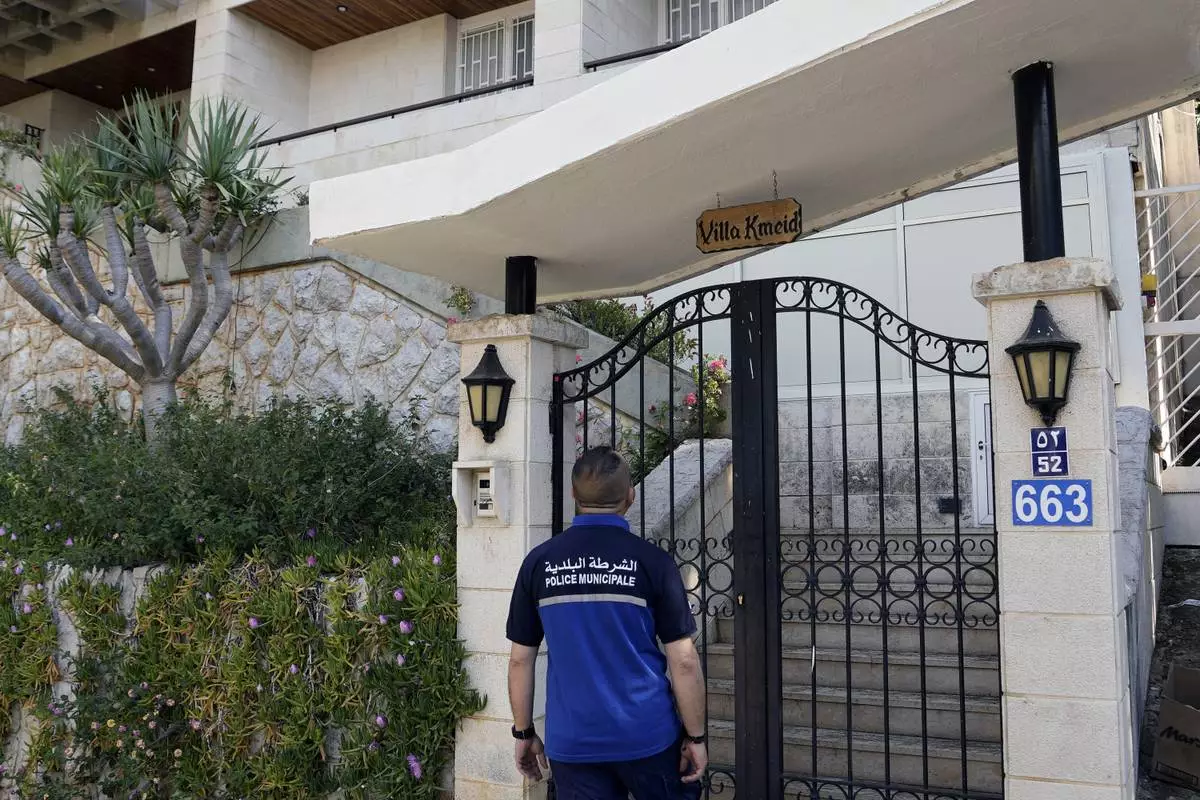
A municipal police officer stands outside a villa where the Lebanese money changer Mohammad Srour, 57, was found tortured and killed in Monte Verdi neighborhood of Beit Meri, Lebanon, Tuesday, April 16, 2024. Lebanon’s interior minister alleged Wednesday that the mysterious abduction and killing of a Hezbollah-linked Lebanese financier in a villa on the edge of a quiet mountain resort town earlier this month was likely the work of Israeli operatives. (AP Photo/Hassan Ammar)
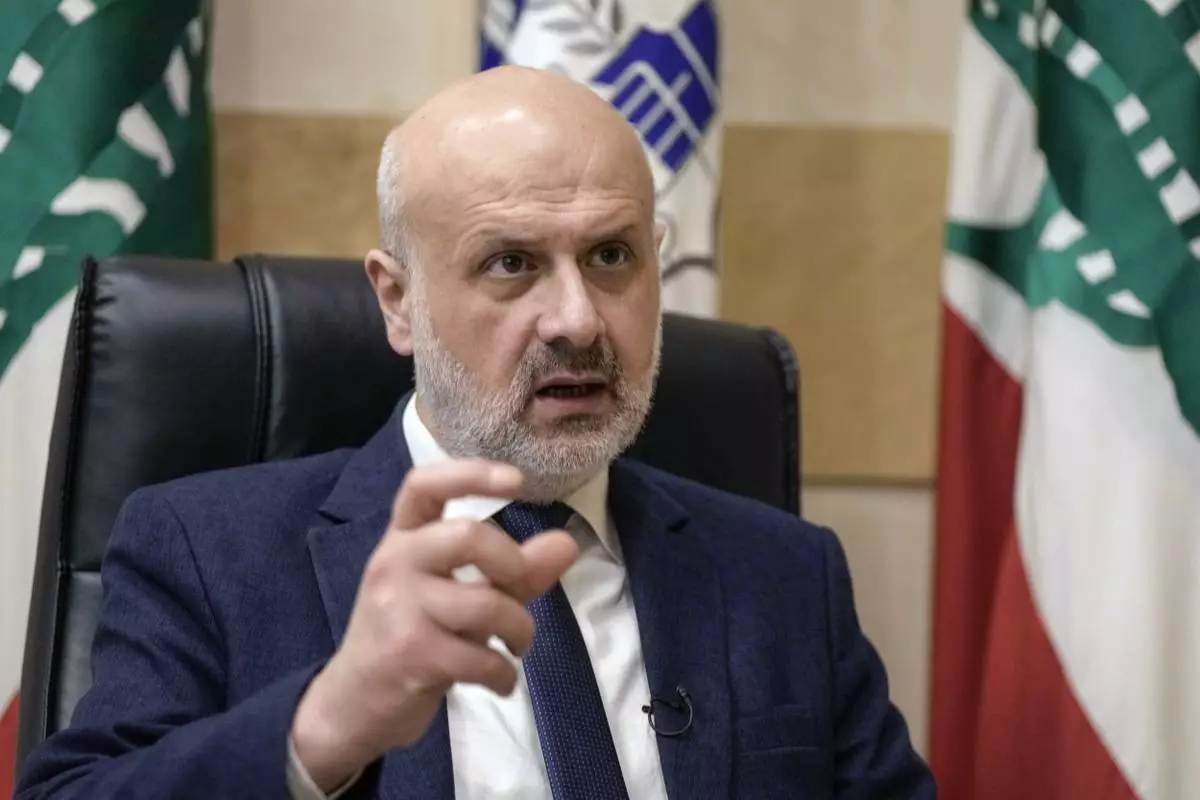
Lebanese Interior Minister Bassam Mawlawi, speaks during an interview with the Associated Press at the interior ministry in Beirut, Lebanon, Tuesday, April 16, 2024. Lebanon’s interior minister alleged Wednesday that the mysterious abduction and killing of a Hezbollah-linked Lebanese financier in a villa on the edge of a quiet mountain resort town earlier this month was likely the work of Israeli operatives. (AP Photo/ Hassan Ammar)
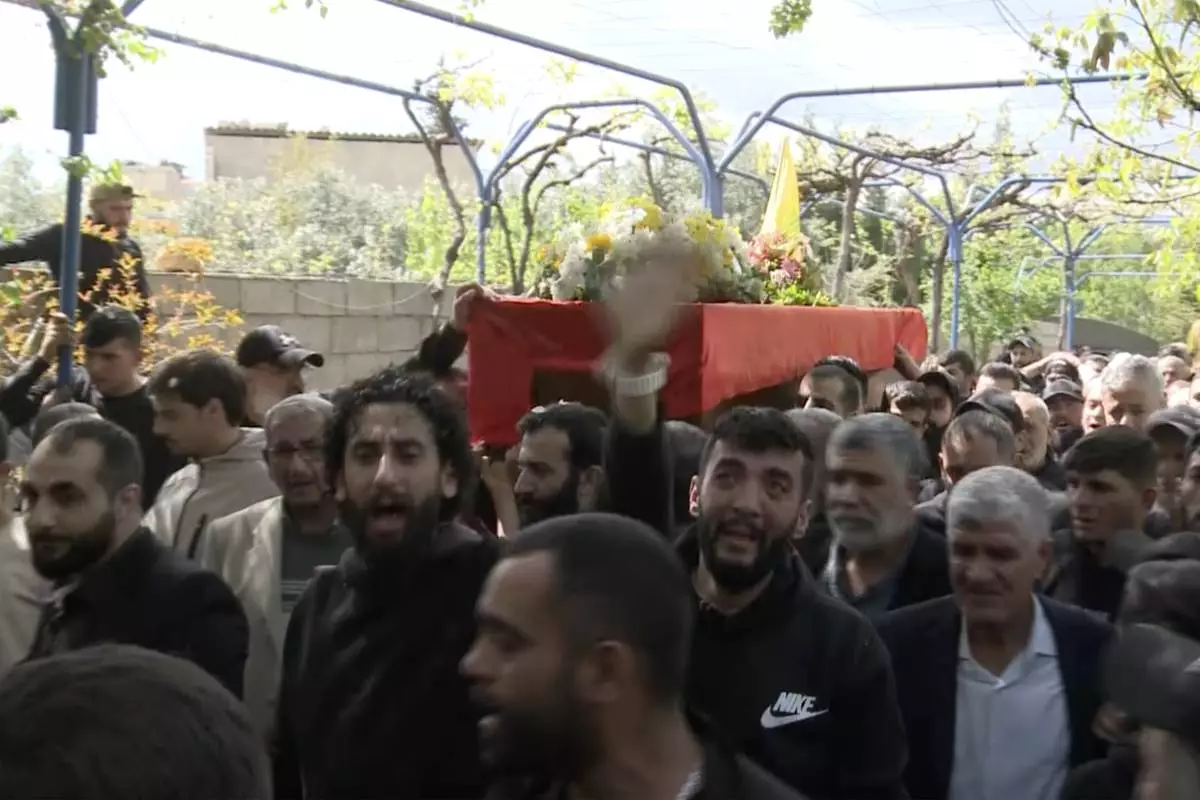
In this grab taken from video, mourners carry the coffin of Lebanese money changer Mohammad Srour, 57, who was found tortured and killed inside a villa in Monte Verdi neighborhood of Beit Meri, during his funeral procession in Labweh village, near the border with Syria, northeast Lebanon, Thursday, April 11, 2024. Lebanon’s interior minister alleged Wednesday that the mysterious abduction and killing of a Hezbollah-linked Lebanese financier in a villa on the edge of a quiet mountain resort town earlier this month was likely the work of Israeli operatives. (AP Photo)
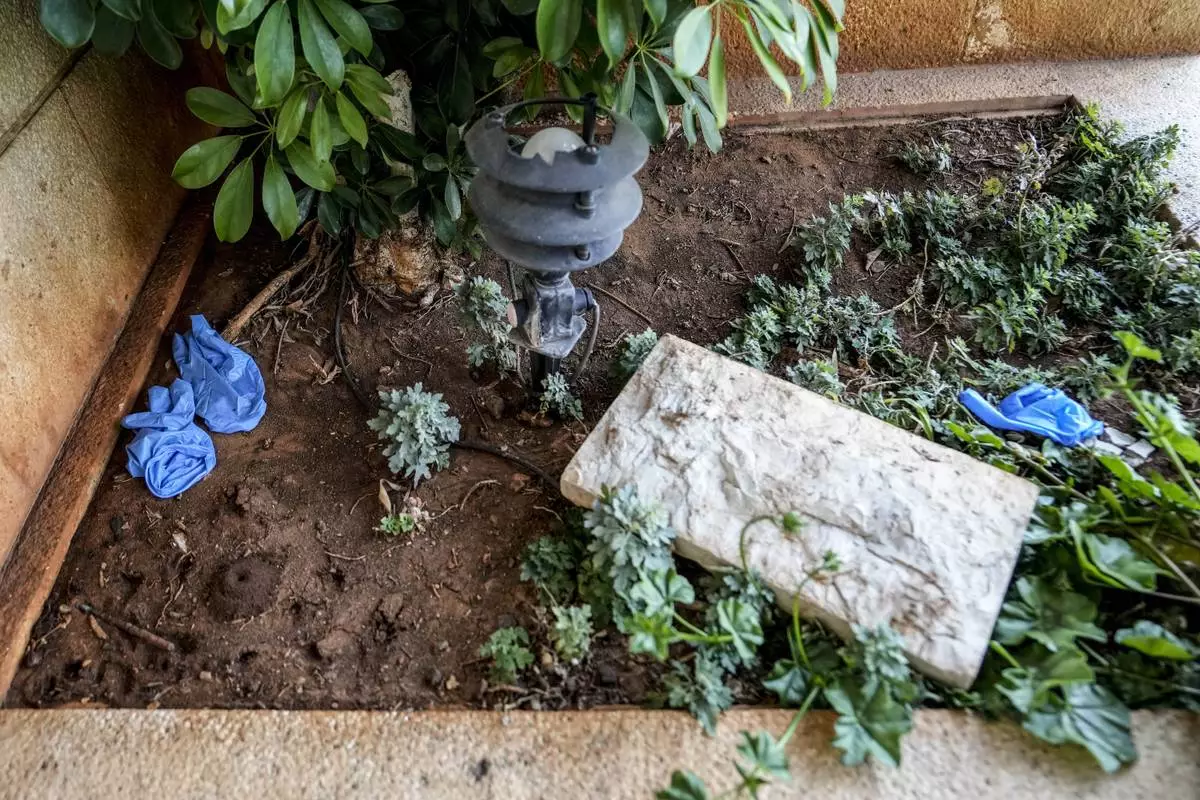
Medical gloves sit outside a villa where money changer Mohammad Srour, 57, was found tortured and killed in Monte Verdi neighbourhood of Beit Meri, Lebanon, Tuesday, April 16, 2024. Lebanon’s interior minister alleged Wednesday that the mysterious abduction and killing of a Hezbollah-linked Lebanese financier in a villa on the edge of a quiet mountain resort town earlier this month was likely the work of Israeli operatives. (AP Photo/Hassan Ammar)
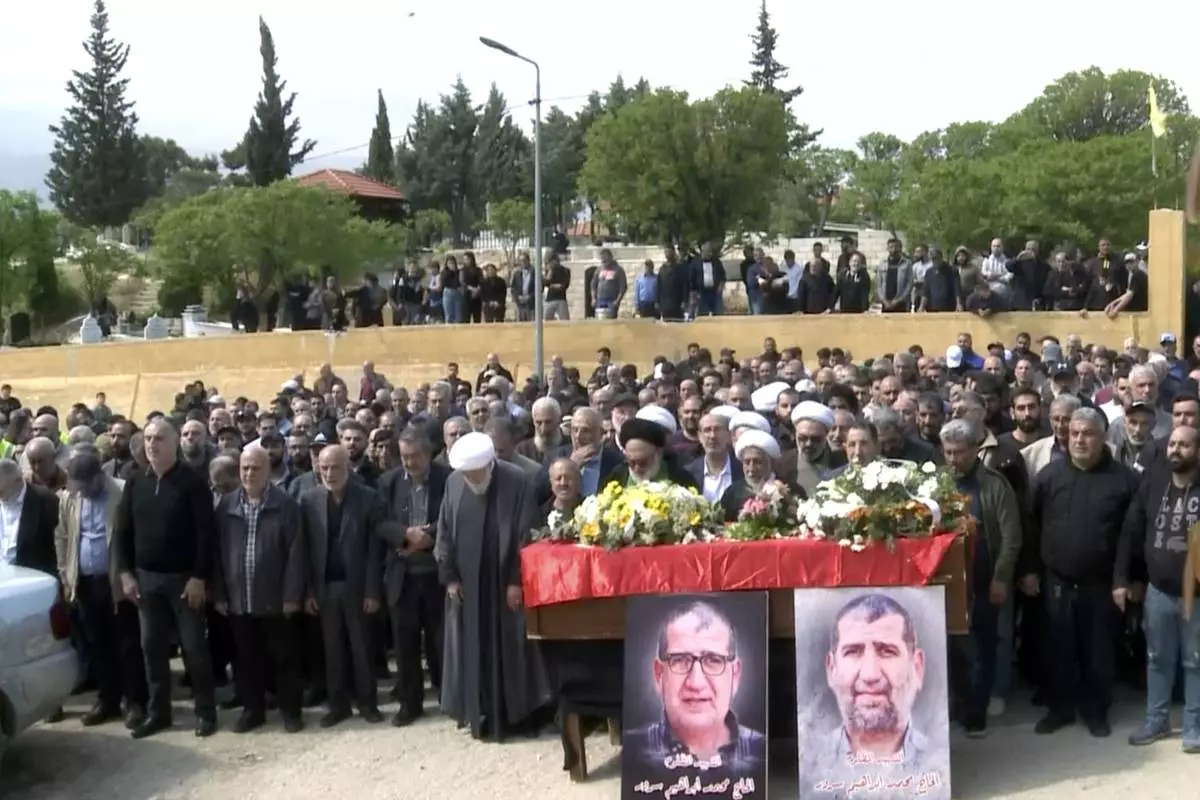
In this grab taken from video, mourners pray over the coffin of Lebanese money changer Mohammad Srour, 57, who was found tortured and killed inside a villa in Monte Verdi neighborhood of Beit Meri, during his funeral procession in Labweh village, near the border with Syria, northeast Lebanon, Thursday, April 11, 2024. Lebanon’s interior minister alleged Wednesday that the mysterious abduction and killing of a Hezbollah-linked Lebanese financier in a villa on the edge of a quiet mountain resort town earlier this month was likely the work of Israeli operatives. (AP Photo)
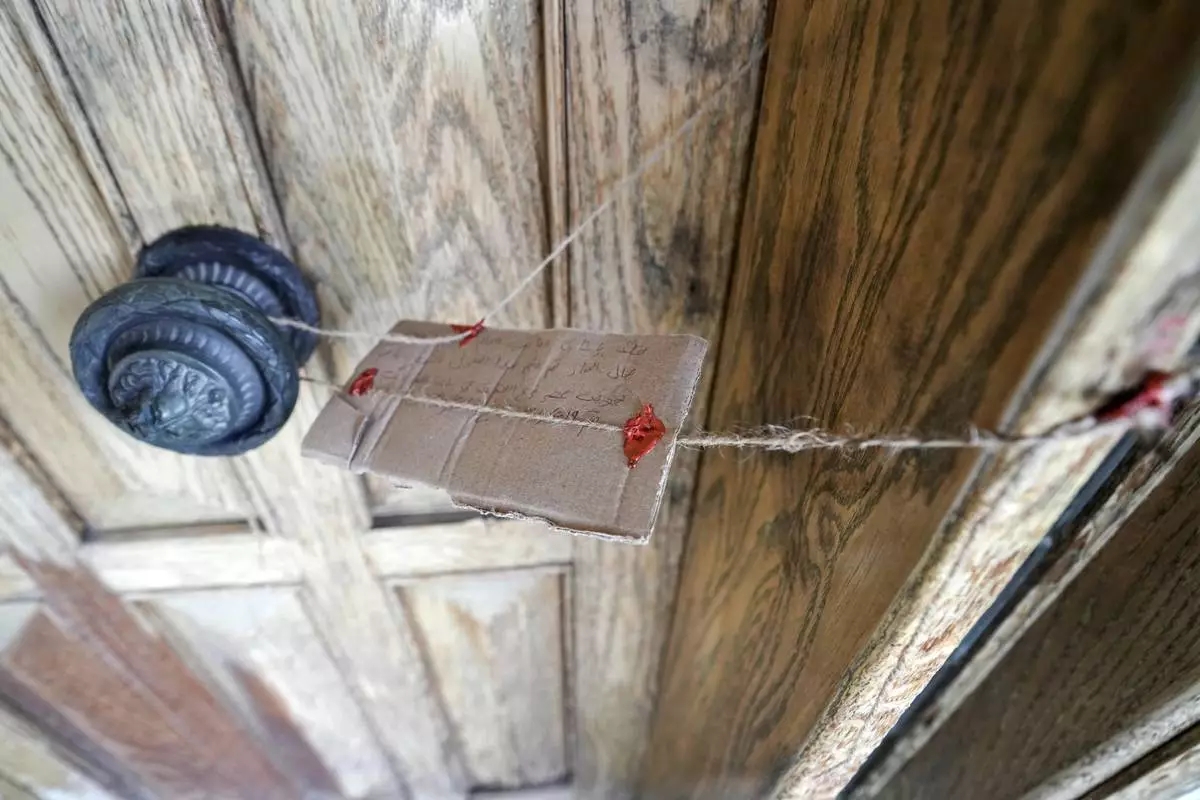
Lebanese authorities sealed the main door of a villa where money changer Mohammad Srour, 57, was found tortured and killed in Monte Verdi neighbourhood of Beit Meri, Lebanon, Tuesday, April 16, 2024. The mysterious abduction and murder of a United States-sanctioned Lebanese money changer in a three-story villa on the edge of a quiet mountain resort town overlooking Beirut was most likely the work of Israeli operatives, Lebanon's interior minister said Wednesday. (AP Photo/Hassan Ammar)

Municipal police officers patrol outside a villa where the Lebanese money changer Mohammad Srour, 57, was found tortured and killed in Monte Verdi neighbourhood of Beit Meri, Lebanon, Tuesday, April 16, 2024. Lebanon’s interior minister alleged Wednesday that the mysterious abduction and killing of a Hezbollah-linked Lebanese financier in a villa on the edge of a quiet mountain resort town earlier this month was likely the work of Israeli operatives. (AP Photo/Hassan Ammar)











